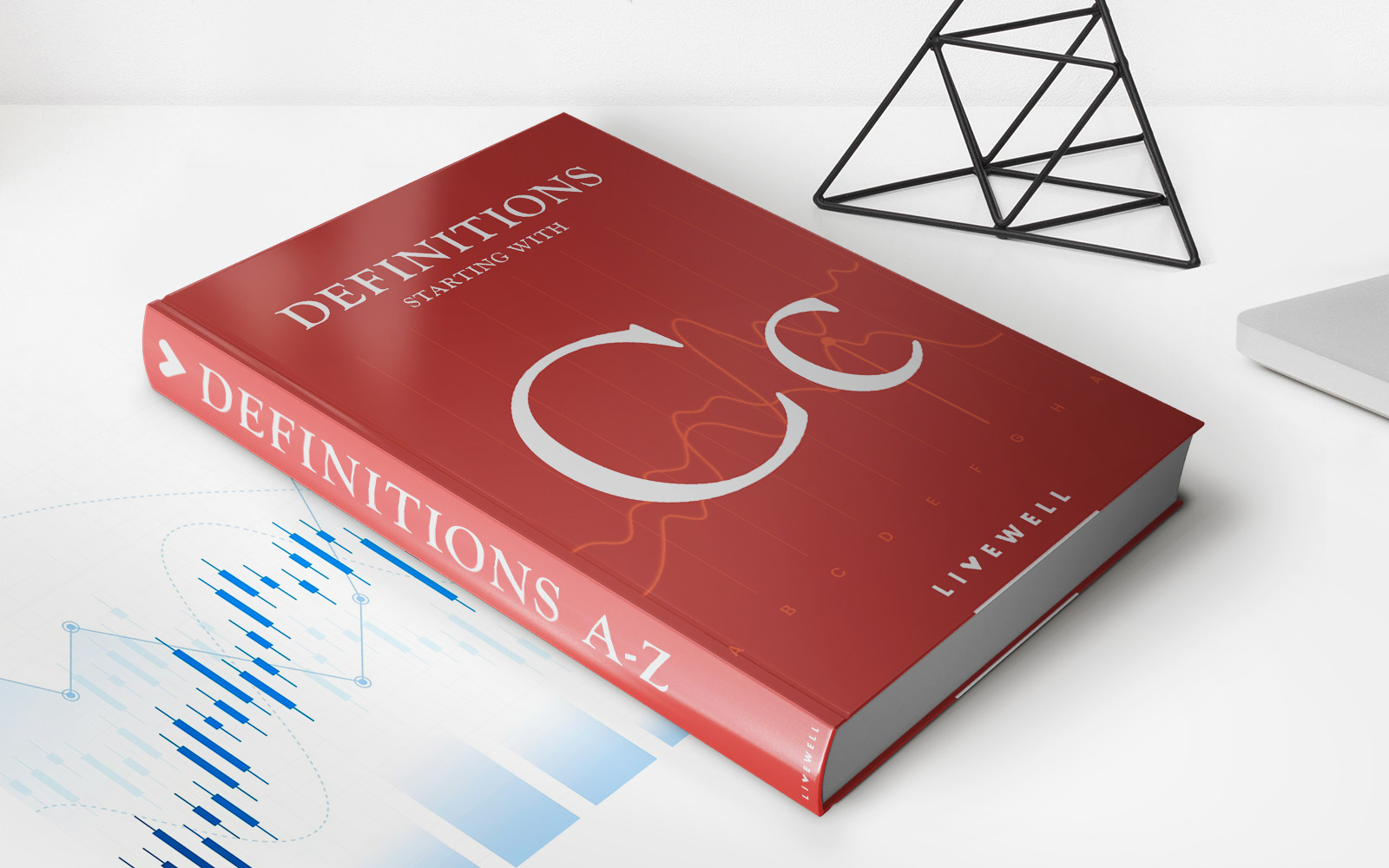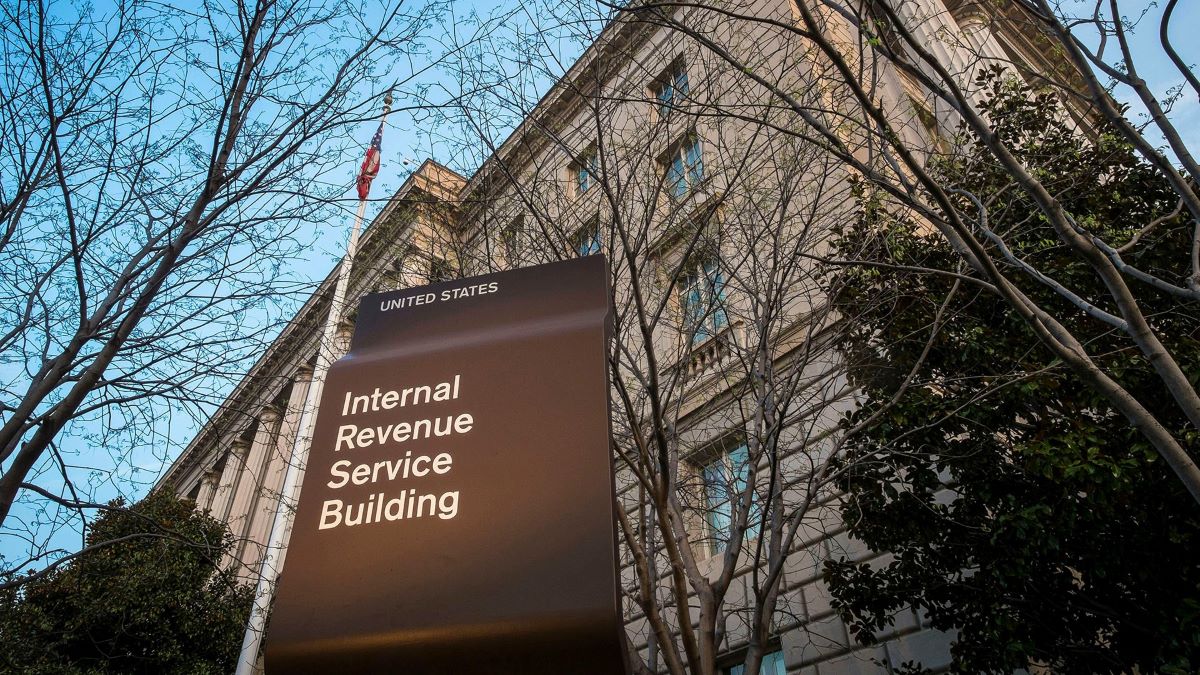

Finance
How Much Does Final Expense Insurance Cost?
Published: November 6, 2023
Get an estimate for the cost of final expense insurance. Explore finance options for this type of insurance coverage and secure your family's financial future.
(Many of the links in this article redirect to a specific reviewed product. Your purchase of these products through affiliate links helps to generate commission for LiveWell, at no extra cost. Learn more)
Table of Contents
Introduction
Final expense insurance, also known as burial insurance or funeral insurance, is a type of life insurance specifically designed to cover the costs associated with a person’s end-of-life expenses. These expenses can include funeral and burial costs, medical bills, outstanding debts, and other related expenses.
Death is an inevitable part of life, and it is important to plan and prepare for these expenses to ease the financial burden on surviving loved ones. Final expense insurance provides a means to ensure that these costs are taken care of, allowing family members to focus on grieving and healing, rather than worrying about the financial aspects.
This type of insurance is typically purchased by individuals who are concerned about leaving their loved ones with the financial burden of funeral expenses. It offers peace of mind, knowing that their final arrangements will be taken care of.
Final expense insurance differs from traditional life insurance in several ways. Unlike regular life insurance policies, final expense insurance policies have lower face values, usually ranging from $5,000 to $25,000. This allows individuals to obtain coverage without the need to undergo a medical examination or answer extensive health-related questions.
This type of insurance is especially popular among seniors who may find it challenging to qualify for traditional life insurance due to age or health conditions. Final expense insurance policies are often easier to obtain, with a simplified application process and guaranteed acceptance.
In the following sections, we will explore the factors that can impact the cost of final expense insurance, provide an overview of average costs, offer tips for determining the right coverage amount, and share strategies for saving on final expense insurance premiums.
Understanding Final Expense Insurance
Final expense insurance is a specific type of life insurance policy that is designed to cover the costs associated with a person’s funeral, burial, and other end-of-life expenses. It provides a financial safety net for loved ones, ensuring that they are not burdened with the costs of these arrangements.
Unlike traditional life insurance policies, final expense insurance policies are typically smaller in face value, ranging from $5,000 to $25,000. The purpose of this lower coverage amount is to specifically address the immediate expenses that arise after a person’s passing, such as funeral services, casket or urn, burial plot or cremation, headstone, and other related costs.
Final expense insurance can provide peace of mind for individuals and their families, as it allows for a dignified farewell without the worry of financial strain. It offers financial stability during a difficult time, ensuring that loved ones can focus on grieving and healing rather than the financial aspects of end-of-life arrangements.
One key feature of final expense insurance is that it often comes with simplified underwriting. Unlike traditional life insurance policies that may require a medical examination and extensive health-related questions, final expense insurance policies typically have a simplified application process with guaranteed acceptance. This makes it an attractive option for individuals who may have difficulty obtaining traditional life insurance due to age or health conditions.
Final expense insurance is often purchased by seniors who want to provide for their families and ease the financial burden that may arise after their passing. It can also be a valuable option for individuals who do not have significant savings or investments set aside specifically for end-of-life expenses.
It is important to note that final expense insurance can be used to cover more than just funeral and burial costs. Depending on the policy, it may also provide coverage for outstanding medical bills, legal fees, and other debts or financial obligations that may need to be settled after a person’s passing.
In the next section, we will discuss the factors that can influence the cost of final expense insurance and how insurers determine the premiums for these policies.
Factors Affecting Final Expense Insurance Cost
Several factors can influence the cost of final expense insurance. Understanding these factors is crucial in determining the premiums you will pay for your policy. Here are some of the key elements that insurers consider when assessing the cost of final expense insurance:
- Age: Age is one of the most significant factors affecting final expense insurance premiums. Generally, the younger you are when you purchase a policy, the lower your premiums will be. This is because younger individuals are typically seen as having a longer life expectancy and therefore lower risk for the insurer.
- Health status: Your health plays a crucial role in determining the cost of final expense insurance. Insurers may ask you to answer a series of health-related questions on the application, and your answers will impact your premiums. Individuals with pre-existing health conditions or a history of serious illnesses may be charged higher premiums or may even be declined coverage.
- Gender: Gender can also affect the cost of final expense insurance. Statistically, women tend to live longer than men, so they may receive lower premiums compared to their male counterparts of the same age and health profile.
- Smoking status: If you are a smoker, it is likely to have an impact on your final expense insurance premiums. Smokers generally face higher rates due to the increased health risks associated with smoking.
- Policy coverage amount: The coverage amount you choose for your final expense insurance will influence the premium costs. Naturally, higher coverage amounts will result in higher premiums. It is important to strike a balance between adequate coverage and affordable premiums.
- Policy type: There are different types of final expense insurance policies, such as simplified issue and guaranteed issue. Simplified issue policies require answering a few health questions, while guaranteed issue policies have no health questions and provide coverage without underwriting. Guaranteed issue policies typically have higher premiums due to the increased risk for the insurer.
It is essential to note that each insurance company may weigh these factors differently when determining the cost of your final expense insurance policy. It is recommended to obtain quotes from multiple insurers to compare prices and find the best coverage at the most competitive rate.
In the next section, we will explore the average cost of final expense insurance to give you a better understanding of what you can expect to pay for this type of coverage.
Average Cost of Final Expense Insurance
The cost of final expense insurance can vary depending on several factors, including age, health status, coverage amount, and the type of policy chosen. However, it is helpful to have a general idea of the average cost to better understand what you can expect to pay.
On average, final expense insurance premiums can range from $30 to $100 per month. This range is based on a coverage amount of $10,000 to $20,000, with the final cost determined by factors such as age and health. Keep in mind that these numbers are estimates, and your actual premium may be higher or lower depending on your individual circumstances.
For individuals in their 50s or early 60s, the average cost of final expense insurance tends to be lower, ranging from $30 to $60 per month. As you age, however, the premiums typically increase. Individuals in their 70s or older can expect to pay higher premiums, potentially ranging from $60 to $100 per month or more.
It is important to note that these estimates are for illustrative purposes only, and individual quotes may vary significantly. The best way to determine the exact cost of final expense insurance is to request quotes from multiple insurance providers. This way, you can compare prices and find a policy that meets your needs and budget.
Additionally, it is worth mentioning that some insurance companies offer policies with level premiums, meaning that the cost will remain the same throughout the duration of the policy. Other policies may have increasing premiums, which means the cost will gradually increase over time.
When considering the average cost of final expense insurance, it is also essential to evaluate the coverage amount. While $10,000 to $20,000 is a common coverage range, some individuals may require more or less coverage based on their specific circumstances and preferences.
Understanding the average cost of final expense insurance can help you budget for this type of coverage and make informed decisions about the appropriate coverage amount and policy type for your needs.
In the next section, we will provide tips on how to determine the right coverage amount for your final expense insurance policy.
How to Determine the Right Coverage Amount
When purchasing final expense insurance, it is crucial to determine the right coverage amount that adequately reflects your end-of-life expenses and provides financial protection for your loved ones. Here are some factors to consider when determining the appropriate coverage amount:
- Funeral and burial costs: Consider the anticipated expenses for your funeral and burial or cremation. Research local funeral homes and consult with professionals to get a better understanding of the costs involved in your area. Take into account services, casket or urn, burial plot or cremation, headstone, and other related expenses.
- Outstanding debts and financial obligations: Evaluate your outstanding debts, such as credit card balances, loans, mortgages, or medical bills. You may want to include the amount needed to settle these obligations in your coverage amount to avoid burdening your loved ones with additional financial stress.
- Desired legacy or financial support: Consider whether you want to leave any amount behind as a legacy or provide financial support to your loved ones. This could include funds for education expenses, a charitable donation, or maintenance of a family home.
- Individual circumstances: Take into account your unique circumstances and preferences. Consider your family size, dependents, and any specific needs or wishes you may have. This will help determine if you require a higher or lower coverage amount.
It is important to strike a balance when determining the coverage amount for your final expense insurance. While you want to ensure the policy adequately covers your expenses, it is also essential to consider affordability. You should be able to comfortably afford the premiums without putting a strain on your budget.
Consulting with a financial advisor or insurance professional can be beneficial during this process. They can provide guidance based on your specific situation and help you evaluate your options.
Remember to review and reassess your coverage amount periodically. Life circumstances can change, and it may be necessary to adjust your coverage as needed. For example, paying off debts or saving for end-of-life expenses may reduce the necessary coverage amount over time.
By carefully considering your financial circumstances, potential expenses, and personal preferences, you can determine the right coverage amount for your final expense insurance policy. This will provide you with peace of mind, knowing that your loved ones will be protected and financially secure after your passing.
In the next section, we will share some tips that can help you save on final expense insurance premiums.
Tips for Saving on Final Expense Insurance
While final expense insurance is an important investment, there are several strategies you can implement to save on premiums and make it more affordable. Consider the following tips to lower the cost of your final expense insurance:
- Compare quotes: Obtain quotes from multiple insurance providers to compare prices and find the most competitive rates. Each insurer may have different underwriting criteria and pricing, so it is essential to explore your options.
- Choose the right coverage amount: Carefully assess your needs and choose a coverage amount that adequately reflects your anticipated expenses. Avoid overestimating or underestimating the coverage amount, as either can result in higher premiums or possible gaps in coverage.
- Maintain a healthy lifestyle: Leading a healthy lifestyle can positively impact your insurance premiums. Avoid smoking, maintain a healthy weight, exercise regularly, and manage any pre-existing health conditions to demonstrate to insurers that you are a lower risk.
- Consider a term policy: If you have a specific end-of-life expense in mind, such as funeral costs, you may opt for a term policy rather than a whole life policy. Term policies typically have lower premiums but provide coverage for a limited period, such as 10 or 20 years.
- Pay premiums annually: Opting to pay your premiums on an annual basis rather than monthly or quarterly can often result in a discounted rate. Insurance companies may offer a discount for paying in one lump sum upfront.
- Opt for a shorter benefit payout period: Final expense insurance policies can have different benefit payout periods, such as 10, 20, or 30 years. Choosing a shorter benefit payout period can reduce your premiums since the insurance company is exposed to a shorter risk window.
- Utilize a rider instead of additional coverage: Instead of purchasing additional coverage, consider utilizing policy riders. Riders are add-ons that provide extra benefits, such as accidental death coverage or accelerated death benefit, at a lower cost compared to buying separate policies.
- Review your policy periodically: Regularly review your final expense insurance policy to ensure it still aligns with your needs and circumstances. If you have made lifestyle changes or paid off debts, you may be eligible for lower premiums by adjusting your coverage amount.
Implementing these tips can help you save money on your final expense insurance premiums while still ensuring adequate coverage for your end-of-life expenses.
Please keep in mind that while saving money is important, it is equally crucial to select a reputable insurance provider that offers reliable coverage and exceptional customer service. Take the time to research and read reviews about different companies before making a decision.
In the next section, we will address some common questions about the cost of final expense insurance.
FAQs about Final Expense Insurance Cost
Here are some frequently asked questions regarding the cost of final expense insurance:
- Q: Is final expense insurance expensive?
- Q: Can I get final expense insurance if I have pre-existing health conditions?
- Q: Can I change my coverage amount later?
- Q: Can I cancel my final expense insurance policy?
- Q: Are there any discounts available for final expense insurance?
- Q: Can I include my spouse or family members on my final expense insurance policy?
A: Final expense insurance premiums can vary depending on factors such as age, health, coverage amount, and policy type. While it may be more affordable compared to traditional life insurance, it is crucial to shop around and obtain quotes from multiple insurance providers to find the best rate for your needs.
A: Yes, final expense insurance often has simplified underwriting, which means individuals with pre-existing health conditions can still qualify for coverage. While the premiums may be higher for individuals with health issues, it is essential to compare quotes from various insurers to find the most favorable rates.
A: It is essential to review and reassess your coverage amount periodically. Depending on the policy, you may be able to adjust your coverage amount in the future. Note that any changes to the coverage amount may result in adjustments to your premiums.
A: Yes, you can typically cancel your final expense insurance policy if needed. However, depending on the terms of your policy, there may be fees or surrender charges associated with cancellation. It is advisable to review the terms and conditions of your policy or consult with your insurance provider to understand the cancellation process.
A: Some insurance companies may offer discounts for various reasons, such as paying premiums annually instead of monthly or having multiple policies with the same insurer. It is recommended to inquire with different providers about any available discounts or promotions.
A: Final expense insurance policies are usually purchased on an individual basis. However, some insurers may offer family or spousal riders or allow you to name a beneficiary who can use the policy benefit towards their own final expenses. It is important to discuss these options with your insurance provider to explore the best approach for your specific situation.
Keep in mind that the answers provided above are general guidelines, and specific terms and conditions may vary depending on the insurance company and policy chosen. It is always recommended to review the details of your policy and consult with an insurance professional to address any specific questions or concerns you may have.
Concluding our discussion, final expense insurance provides an essential means to cover end-of-life expenses and alleviate the financial burden on your loved ones. By understanding the factors affecting cost, determining the right coverage amount, and exploring tips for saving on premiums, you can make informed decisions and secure the necessary coverage to protect your family’s financial well-being during a challenging time.
Conclusion
Final expense insurance is a valuable tool that provides peace of mind and financial protection to both individuals and their families. By understanding the ins and outs of final expense insurance, you can make informed decisions about coverage and secure the necessary funds to ensure a dignified farewell without burdening your loved ones with the financial strain of end-of-life expenses.
In this article, we explored various aspects of final expense insurance, including its purpose, factors affecting the cost, average premiums, determining the right coverage amount, and tips for saving on premiums. We also addressed common questions that individuals may have regarding the cost of this type of insurance.
Remember, when considering final expense insurance, it is crucial to obtain quotes from multiple insurance providers to compare prices and coverage options. Each insurer has its own underwriting criteria and pricing, so exploring different options allows you to find the most competitive rates for your specific needs.
Additionally, reviewing and reassessing your final expense insurance policy periodically is essential. As your circumstances change, such as paying off debts or experiencing improvements in your health, you may be able to adjust your coverage amount, which can result in lower premiums or more suitable coverage.
While affordability is important, it is also crucial to choose a reputable insurance provider that offers reliable coverage and excellent customer service. Take the time to research and read reviews about different companies before making a decision.
By taking the necessary steps to understand and optimize final expense insurance, you can ensure that your financial affairs are in order, and your loved ones are protected when it matters most. Remember, the true value of final expense insurance lies not just in financial security but also in the peace of mind it provides to you and your family.














